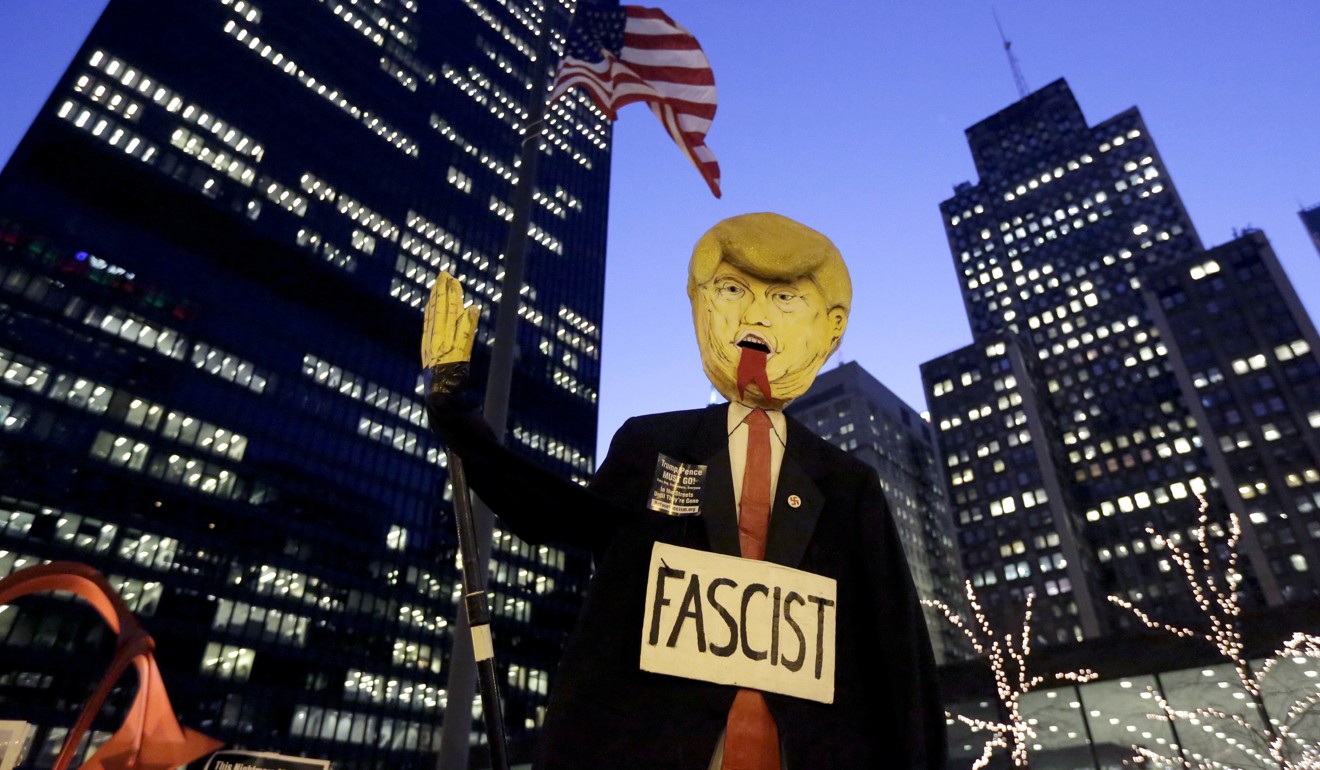
Arsonist in the house: Trump shows cynicism on Jerusalem
Recognising the city as Israel’s capital may be a sign the US does not want peace – or that Trump is raising his bargaining hand
US President Donald Trump’s decision to recognise Jerusalem as the capital of Israel was met by near-universal disbelief.
Across the Middle East and the Muslim world, the move was condemned even before it was announced. Hamas leader Ismail Haniyeh labelled it a declaration of war, and called for an intifada. Saudi Arabia issued a rare rebuke. European allies made clear their opposition, reiterating their adherence to UN resolutions that the status of Jerusalem can only be a product of negotiations between Israel and Palestinians.

Outside the United States and Israel, it is near impossible for anyone to understand the impetus for such a move. Why on earth would one pour petrol on a region that is already burning? Certainly, many in Asia have no choice but to trot out the hackneyed image of the American cowboy cruisin’ for a bruisin’. Trump is no John Wayne, but he sure loves twirling the guns.
Many commentators reason that Trump is gambling with foreign stability to shore up a domestic base of evangelicals and pro-Israel donors such as Sheldon Adelson, the casino king. The causal chain of explanation stops about there.
While there is not much to chew on in the causal upstream, considering the consequences downstream allows us to characterise what sort of action Trump’s declaration amounts to. Two candidates come to mind.

One: declaring Jerusalem to be the capital of Israel and ordering the US embassy to move there from Tel Aviv is mischievous. What such an announcement prejudges is not the shape of a final settlement, but the possibility of making any progress towards one at all. It pulls the rug out from under any well-meaning diplomat who may still exist in the US State Department, or statesman in Congress, to pursue any peace process.
In essence, this confirms the view of pessimists that not only does Israel not want to make peace, but the US doesn’t either. This is why there is near consensus that the US now loses any ability to act as an honest broker in future negotiations.
Certainly, the announcement weakens the hand of moderates and strengthens the hands of extremists of all stripes – Muslim, Jewish and Christian – including those of Trump’s own constituency, whether evangelical, racial, Republican or lumpen. Domestically, Trump and his band of provocateurs, such as Steve Bannon and Milo Yanniopoulos, have had plenty of experience and success stoking cultural civil war, such as in Charlottesville. Buoyed by this success, Trump may now be looking to take it abroad.
Trump’s vanishing act: a metaphor for the US in Asia?

Two: the announcement is cynical. Trump’s recognition of Jerusalem as the capital of Israel, unlike previous US presidents, while signing the waiver on moving the embassy for six months, like previous US presidents, activates the waiver as a threat because automatic postponement can no longer be taken for granted. US presidential action on Jerusalem is a three-step process. Recognition, the first step, has now been taken. The second step, letting the waiver on moving the embassy lapse, has not been taken, but is now more credible. Trump and his emissaries can now wave the potential embassy move as a sword over the heads of counterparties in negotiations. The third step, which will take years to complete, is the construction of the embassy building itself.
Netanyahu’s drama-free Singapore trip: are Malaysia, Indonesia finally warming to Israel?
These steps are being used to ratchet things up; Trump is essentially raising his price before coming to the bargaining table. His threats and bluster soften up counterparties, who respond by giving in to him and lowering their price and expectations even before engaging. We have seen this standard operating procedure at work repeatedly in the course of this young presidency. The method works especially well when dealing with those stigmatised by the domestic US population, such as Arabs and Chinese. Players in both regions suck it up as the cost of doing business; China has given at least 38 trademarks to the Trump family, and the Arabs have come through with hundreds of billions of dollars in orders for US arms factories.

By taking the first step, and not actually taking the second step, Trump earns credit with his donors and his voters, without incurring the excessive, multidimensional costs that actually moving the US embassy to Jerusalem would entail – cynical.
Whether mischievous or cynical, Trump’s declaration is clearly reckless and irresponsible. This is not the exercise of Great Power leadership. What we have just witnessed is an arsonist in the White House taking a torch to God’s House.
The best outcome one can hope for is that everyone, including Trump, agrees to discount Trump’s threat, and underreact to his uncalled-for provocation. Trump is by now well known for talking up a threat and not following through on it. He may be betting that everyone understands that, and is discounting what he says. If he is correct, we may be in a better place than we first thought. Let us hope he knows his audience well, fans and foes in equal measure. ■
Engseng Ho is the director of the Middle East Institute, National University of Singapore
